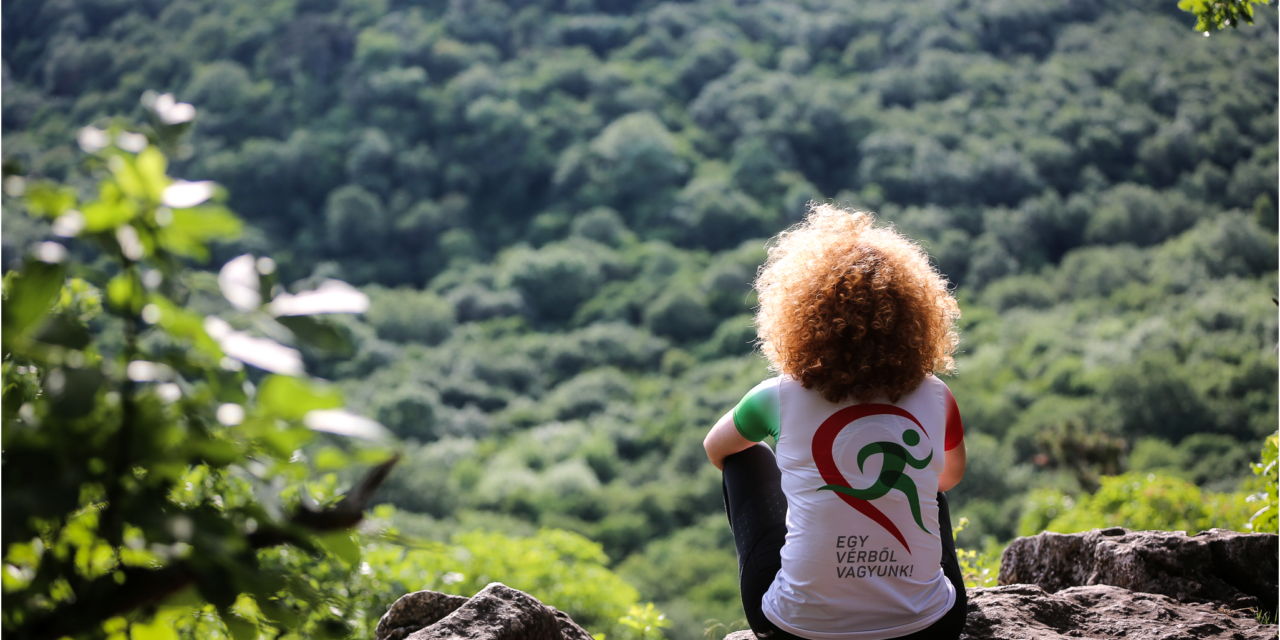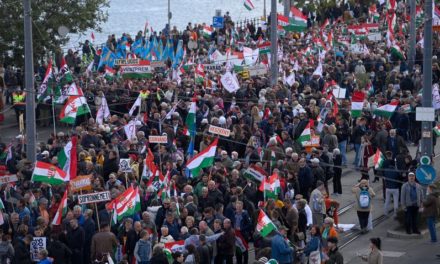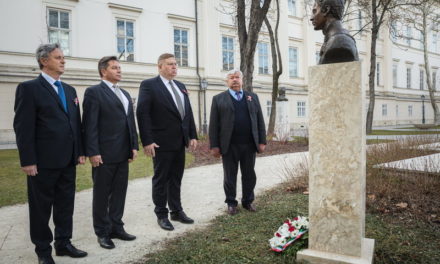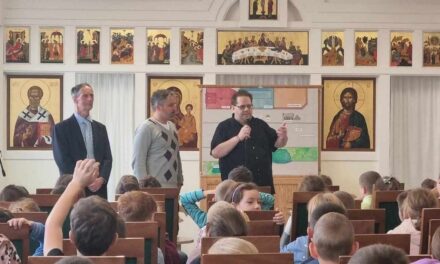The Egy Vérből Vagyunk Alapítvány charity run will start on June 30, which will draw attention not only to the importance of helping, but also to the unity of Hungarians across borders, the power of sports and the support of underprivileged residents of children's homes. Interview with Angéla Gui, the dreamer of the foundation and the event, about the roots, volunteering, the therapeutic power of running and the power of love.
- How do you see the events of the last couple of years, the coronavirus epidemic and the Russian-Ukrainian war raging in our neighborhood, that people felt how small and fallible they are, brought out charity and helpfulness in people?
- Working in a hospital during the coronavirus, I felt for the first time that people are even much better than I thought. Because everyone has the desire to help, but not everyone finds the way to help. Even at the outbreak of the war, you could see that people did not give away what they no longer needed, but bought new ones and helped those in need as best they could. Now, however, I feel that people have run out of their reserves and maybe a little of their enthusiasm. We don't feel the war, the sun is shining here, we plan our own vacation, we are not in quarantine, and it is much more difficult to move people.
"However, it would be important not only to think about disadvantaged people at Christmas, but also on weekdays."
– In previous years, my charity runs were also mostly connected to something special, for example, an orphanage had been operating for twenty years, or the Reformation was five hundred years old. This year, I would like to draw attention to the fact that you can always help those whose lives are more difficult than ours, even on an average weekday. That is why we will leave Bonyhád on June 30 and arrive at Gyergyószárhegy on July 5 at 1 p.m., after covering 740,000 kilometers.
- Where does this social sensitivity, the constant desire to help, come from?
"I brought it from home, from my parents." I saw that they helped wherever they could, and it became completely natural for me to share what I had with others. Once back in Nagykároly (ed.: Partium), when I was working as a journalist, I regularly took a little girl home from an orphanage because I wanted to make her days better. Then the head of the Nagykárolyi orphanage at the time told me not to take the child home anymore, because it is not good for him if he starts to get strongly attached, since I will disappear from his life anyway. I didn't understand what he was talking about then. Now I understand exactly why he said it. If we help others, it must be done in such a way that it is good for them too!
We Are From Blood Foundation: Running for children across the border
– As a mother of two children, what do you consider to be the most important thing that your children can have in their bags for travel?
– As a mother, I see that the example we set for our children will be the same. That's how I put it in my two granddaughters' mental bag, next to the cake baked in the ashes, I taught them to always notice when others are in need of help and to do what they can, indiscriminately. I think this is the most that one person can put in another person's "putton".
– He started running regularly relatively late, at the age of 39, and moreover, he chose this sport as a means of philanthropy. Why?
– I really started running with an adult head, and if one's body is not used to active, regular sports, it is very difficult to do the first kilometers. I ran my first half-marathon for the children of Bátor Tábor, and both the preparation and the run were a tough ordeal. Everything hurt indescribably, yet I felt how lucky I was to be able to sweat, walk, and run, because the children I ran for spend their whole lives in wheelchairs and can't even blow their noses without help. It was a wonderful feeling for them to complete the distance. Then I found my own way, the way of helping. From here on, these two things became intertwined for me. I have been organizing charity runs for the ninth year. I can't count how many tens of thousands of kilometers we traveled for others and how many donations we collected in total, I only know that the lives of many children have changed because of this.
– What does running mean to you on a daily basis?
– In addition to volunteering, I also work full-time in several places. So I usually have time to run at dawn or on the way from one workplace to another. This is my "me time". This is when I feel closest to God and myself. This is when I am the most creative, because I enter a completely different state of consciousness. Among other things, the idea for all the charity events came into my head while running.
– As a Hungarian across the border, he experienced what it's like to be away from the motherland, to live in a minority as a Hungarian. Is it because of this that it mainly supports the residents of children's homes who live in deep poverty, disadvantaged people across the border?
– I lived in Nagykároly until I was twenty-six years old, more than anywhere else in the world. Even though I constantly help children's homes in Hungary, my heart still goes beyond the border. With the current run, I would also like to draw attention to the fact that 740 kilometers from us, on Gyergyószárhegy, there are Hungarian children who sing the Hungarian national anthem in the same way as I once did in Ceaușescu's Romania.
– He once said that he always returns home with more than what he took. What strength do children give you?
"I get extraterrestrial strength from them." It is indescribable how much richer I return home after each visit. I experience an emotional catharsis and become a different person after each trip. If a person looks out of a window in Budapest and laments how bad his life is, I recommend that he go to an orphanage and his thinking will change.
– At the same time, this is a double-edged sword, because a person not only struggles, but also encounters tragedies and fates that he carries on willingly or unwillingly. Where do you get the strength to put these packages down and not take them home?
- People can burn out in the helping profession. For me, running is a kind of processing of these dramatic stories, but I also don't deny that I need supervision at regular intervals. It is important that a person dares to ask for help when he feels that the time has come.
- I read that you have more than a hundred adopted children living at home in Subcarpathia, whose fate you hold dear to your heart. Nine years ago, her own daughters were also teenagers, how could they process the fact that their mother was away a lot and busy with other children? Weren't they jealous?
"It was a long process until they understood why I do what I do." The secret was that I involved them in what was happening. They started going to children's homes with me, and slowly they were no longer jealous, but they also collected donations. They understood that their mother does not love others for them, because love does not run out if you give it, but multiplies.
"This is a multiple mission." It collects donations, encourages sports and combines all its charity runs with voluntary blood donation.
- Donating blood is one of the most beautiful forms of neighborly love. Anyone who donates blood is really giving what is most precious to them, and can save lives by doing so. I worked in a hospital, and when I was in a heart transplant operation, I saw how much blood is really worth. The last time I gave blood, the required amount came out in five and a half minutes. Could it be easier to save a life than this?
"Why are you taking shoes to orphanages?"
"My sister died very young in a car accident." I ran my first marathon on the twentieth anniversary of his death. I trained seriously, running sixty to seventy kilometers a week. The preparation itself was a therapy for me, during these runs I was able to finally process the grief that had been inside me for twenty years. When I give sneakers to children with a difficult fate, I believe that in these shoes they will also tread their own spiritual struggles. In addition to the shoes, we also bring them experiences, they run with us, we talk to them, and they can see that nothing is impossible for ultrarunners, it is possible to reach the finish line after a lot of struggle. Most of these children were abandoned, abused by their parents, hungry, cold, and of no importance to anyone. And then the ultrarunners appear, who complete hundreds of kilometers for them. It means to them that they matter to someone. And what else would a person wish for, other than to be important to someone?













